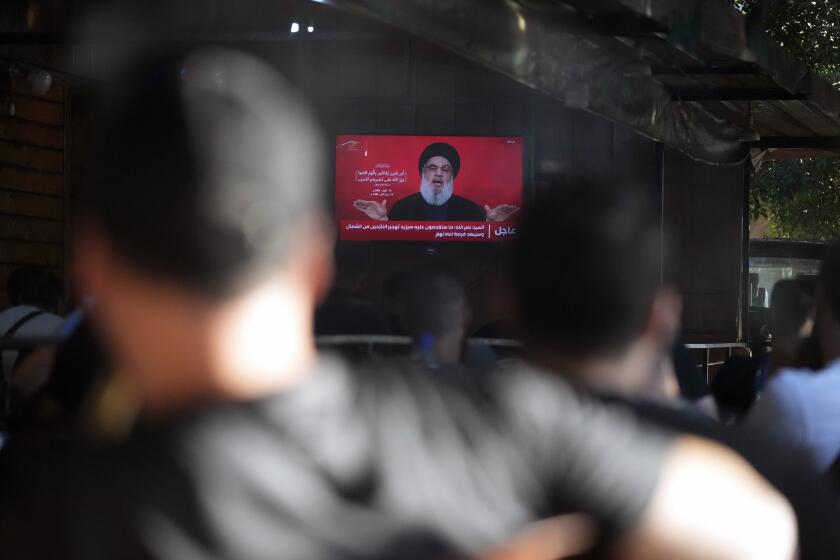British See Beginning in Thatcher’s U.S. Talks : Intense East-West Diplomacy Forecast
Prime Minister Margaret Thatcher’s talks in Washington today and Thursday, and the surprise announcement of Soviet President Mikhail S. Gorbachev’s planned visit to the United States and Britain next month, were billed here Tuesday as opening an intense new round of high-level East-West meetings.
A well-placed British government source said the accelerated pace of contacts across the ideological divide may also lead to an earlier than expected meeting of North Atlantic Treaty Organization leaders in order to better coordinate strategy during the early days of the Bush Administration.
NATO foreign ministers had been scheduled to meet next June in London. But even before news of the Gorbachev visit, British officials were hinting that the NATO forum should be turned into a full-fledged Western summit.
With the Soviet leader now apparently anxious to step up the diplomatic pace, “there could be a (NATO) meeting earlier in the (new) year--perhaps in Brussels,” the government source said. “Nothing is settled yet, but sometime in the spring looks like quite a good bet.”
Thatcher is already scheduled to have a “prolonged” breakfast meeting with another personal friend, President-elect George Bush, on Thursday morning, after talks with outgoing President Reagan and a banquet in his honor today. And that session took on greater importance with the surprise announcement of Gorbachev’s plans.
As recently as last week, a senior Thatcher aide had said the Soviet leader was not expected here until next spring at the earliest.
Gorbachev, who is to meet with both Reagan and Bush during a trip to address the United Nations in New York on Dec. 7, is scheduled to stop in London on the way home for what British officials described as “a pretty intensive round of discussions.”
Always Tops Agenda
Commented a Foreign Office spokesman: “The management of East-West relations was always likely to be the top of the agenda” for Thursday’s Thatcher-Bush meeting. The Gorbachev trip only dramatizes the fact.
The Thatcher government feels almost proprietary about improved superpower ties. “We feel we set the pace on East-West relations at a time several years ago when things looked stuck,” said the Foreign Office spokesman. He referred to Gorbachev’s first visit to Britain, in 1984, before he became Communist Party leader. At that time, Thatcher declared him to be someone she--and, by implication, the West--”could do business with.”
Because of her seniority among Western leaders and careful cultivation of relations with both superpowers, Thatcher is poised for a key role. Her personal ties to Reagan are said to be the warmest between a British prime minister and an U.S. President in modern times, and she is considered to have developed a closer relationship with Gorbachev than any other Western head of government.
Britain’s Independent Television News, quoting unnamed Soviet sources in London, reported Tuesday night that Gorbachev is expected to underline the special relationship by bringing with him next month an official invitation for Queen Elizabeth II to visit Moscow.
Thatcher is nevertheless expected to stress the need for caution in her talks with Bush. As she put it before an audience of top financiers and industrialists here Monday night: “We very much welcome what Mr. Gorbachev is trying to achieve in the Soviet Union. But we should not expect change to come quickly. The vested interests opposed to it are immensely strong, as Mr. Gorbachev frequently reminds us. We are going to find ourselves facing societies of a very different nature from our own for many years to come.”
“The economics of defense will be close to the top of their agenda,” the Daily Telegraph said about the Thatcher-Bush meeting.
Speaking to American correspondents here last week, Defense Secretary George Younger said he is encouraged that Bush appears to have ruled out any unilateral cut in U.S. forces in Europe.
More to Read
Sign up for Essential California
The most important California stories and recommendations in your inbox every morning.
You may occasionally receive promotional content from the Los Angeles Times.










